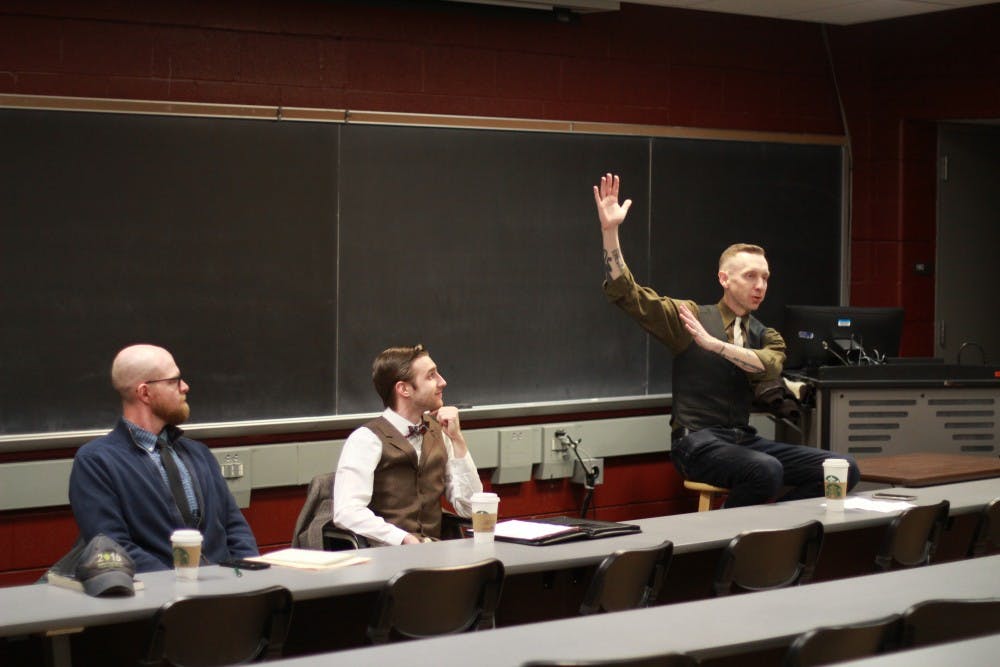Students filled a Dauphin Humanities Center lecture hall last Tuesday to learn about what it is like interpreting Pennsylvania history.
The panel consisted of Shippensburg University alumnus David Maher, a historic preservation specialist in the Pennsylvania State Historic Prevention Office; Ryan Schwartz, gallery educator at the Museum of the American Revolution in Philadelphia; and SU applied history alumnus John Heckman.
The panelists agreed that the most difficult part of being a historical interpreter is getting the public to pay attention.
“History is in color — the public has ‘sepia colored glasses’ on when they think of history. Once you get out of university, most people don’t care anymore about history,” Schwartz said.
The panelists encouraged the audience of future history interpreters to use social media to their advantage by making connections with the public. The rise of social media has allowed historians to reach more people.
By using social media, younger generations are starting to pay a little more attention to history, according to Schwartz.
“We have to keep things fresh and new to keep people coming back,” Schwartz said. “We have to make history relevant to today’s ever-changing society.”
A recurring theme of the evening was the abundance and importance of history in Pennsylvania.
“There is an ever-present density of things here. When you are in Pennsylvania, history is everywhere,” Schwartz said.
“It [Pennsylvania] is a hotbed for history and interpretation,” Heckman added.
While the paycheck for a historical interpreter is not a large amount, the panelist agreed that their field is still worth it.
“Interpretation is the key for the future of public history. It will influence how the public sees us as historians,” Maher said.
Heckman offered some words of advice to the aspiring historical interpreters.
“Don’t let anyone tell you it’s stupid or dumb. Surround yourself with positive people,” he said.
The panel, which was hosted by the SU department of history and philosophy, concluded after almost two hours of discussion and a period of questions and answers.





The Slate welcomes thoughtful discussion on all of our stories, but please keep comments civil and on-topic. Read our full guidelines here.